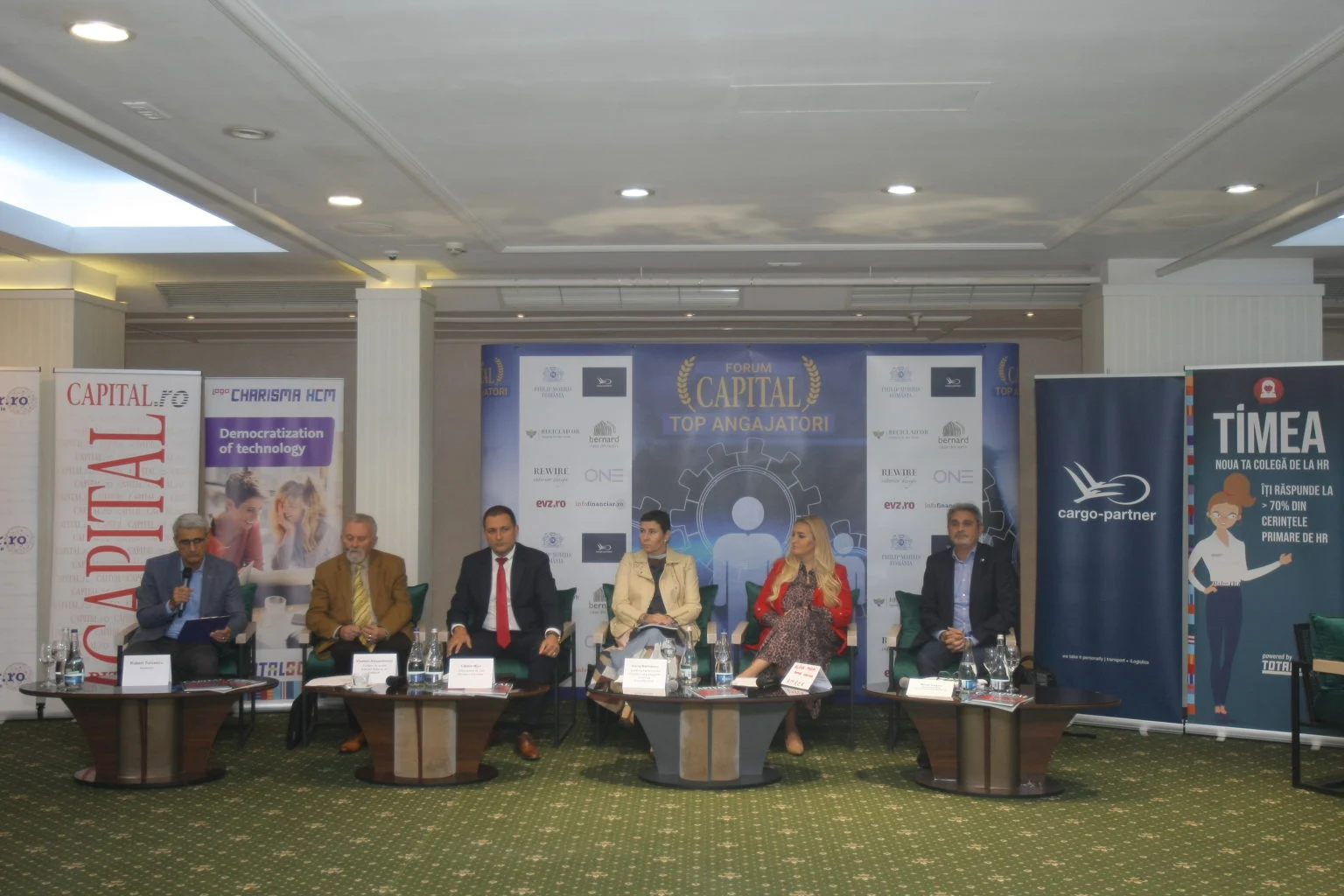Romania’s labour force situation, discussed at the Top Employers Forum. Trends and challenges for HR departments
On Thursday, September 22, the Top Employers Forum, organized by Capital Magazine, took place, where experts in the field, HR directors of some of the largest companies in the country, representatives of state institutions, associations and trade unions debated the most important issues facing the Romanian labour market.
The event was structured in four panels, the first one was on the labour force crisis and the speakers were Vladimir Alexandrescu, spokesperson of the National Institute of Statistics (INS), Cătălin Micu, Undersecretary of State at the Ministry of Education, Ioana Marinescu, Head of the Professional Development and Continuous Training Office of the Romanian Post Office, Alina Mihai, Senior Advisor at the Association of Large Commercial Networks in Romania (AMRCR) and Minel Ivașcu, Vice-President of the National Trade Union, in a discussion moderated by Robert Turcescu.
Healthy life expectancy, a big problem
Vladimir Alexandrescu outlined the main problems that generate the labour crisis in Romania: the constant demographic decline and healthy life expectancy, which in our country is 59 years.
“A big, but little seen and talked about danger in the workplace is healthy life expectancy. In Romania it is 59 years. This means that a sick person can no longer carry out their economic activities and risks becoming a burden on society. This is something we need to think about very carefully, our health system is not prepared for such challenges.” – Vladimir Alexandrescu.
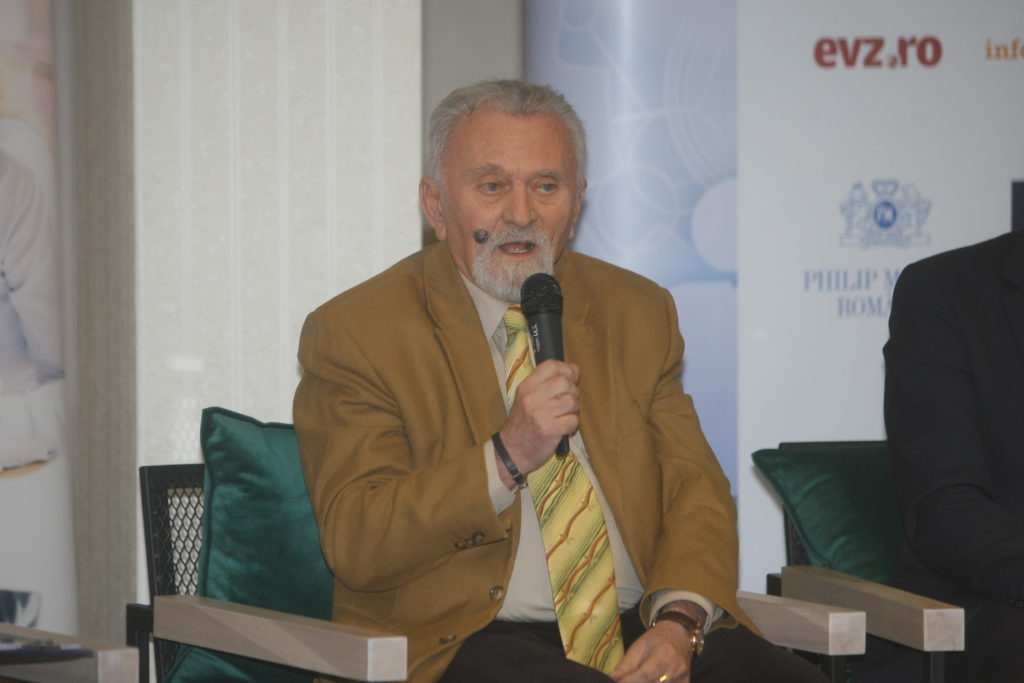
Ioana Marinescu and Alina Mihai said that in their fields, slowly but surely, digitisation is managing to compensate for the lack of workforce, of course in certain activities, exemplifying self-pay checkouts in supermarkets.
Minel Ivașcu criticised several legislative initiatives after 1990 that led to an exodus of the employable population to countries that offered much higher conditions and salaries than Romania, while Cătălin Micu said that the education system in our country is as dynamic as the labour market and the new reforms in education come to meet the needs of the market.
EGO to help companies with foreign employees
In the second panel, labour legislation and labour taxation were debated, with Robert Turcescu having Cristian Vasilcoiu, Secretary of State at the Ministry of Labour, Gabriel Biriș, tax lawyer, Elena Cozianu, HR director at Altex, Elena Panțîru, legal counsel Pro VP and representative of the Employers’ Association of Labour Importers (PIFM) and Christian von Albrichsfeld, general manager of Continental Romania.
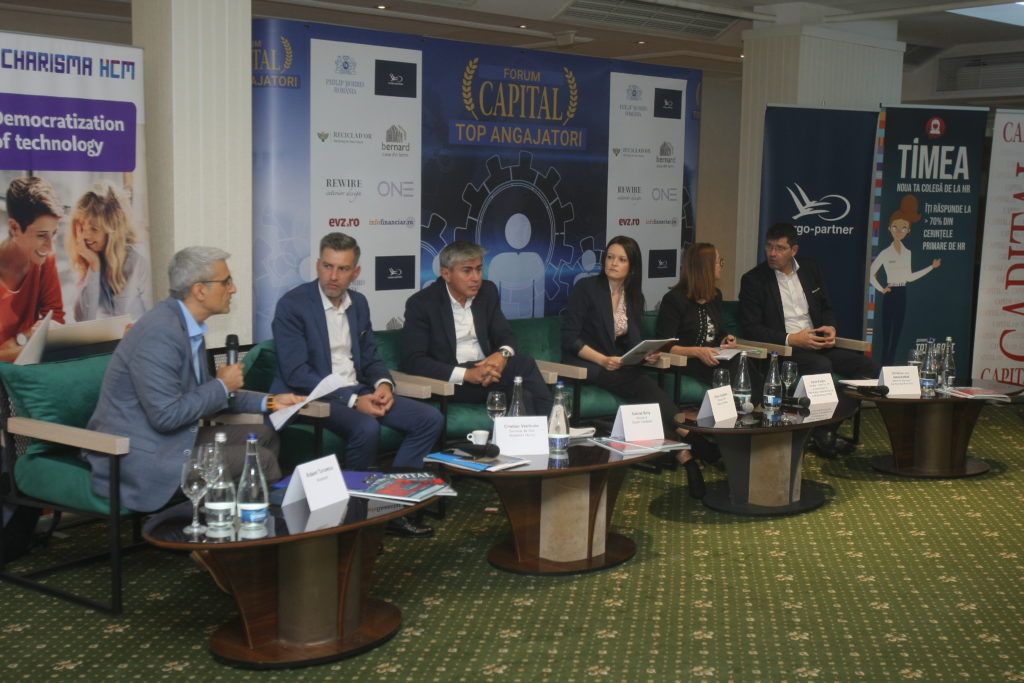
The most debated topic was the recent tax changes that led to the over-taxation of part-time contracts, but also the adjustment of the tax burden. Gabriel Biriș said that this system of taxation is completely unfair, giving the following examples: “I come and ask, what solidarity is that when, as a lawyer, I have to pay a health contribution three times lower than my secretary, who earns much less than me? This is destroying us as a nation in the long run. The simplest and fairest solution is to cap state contributions.”
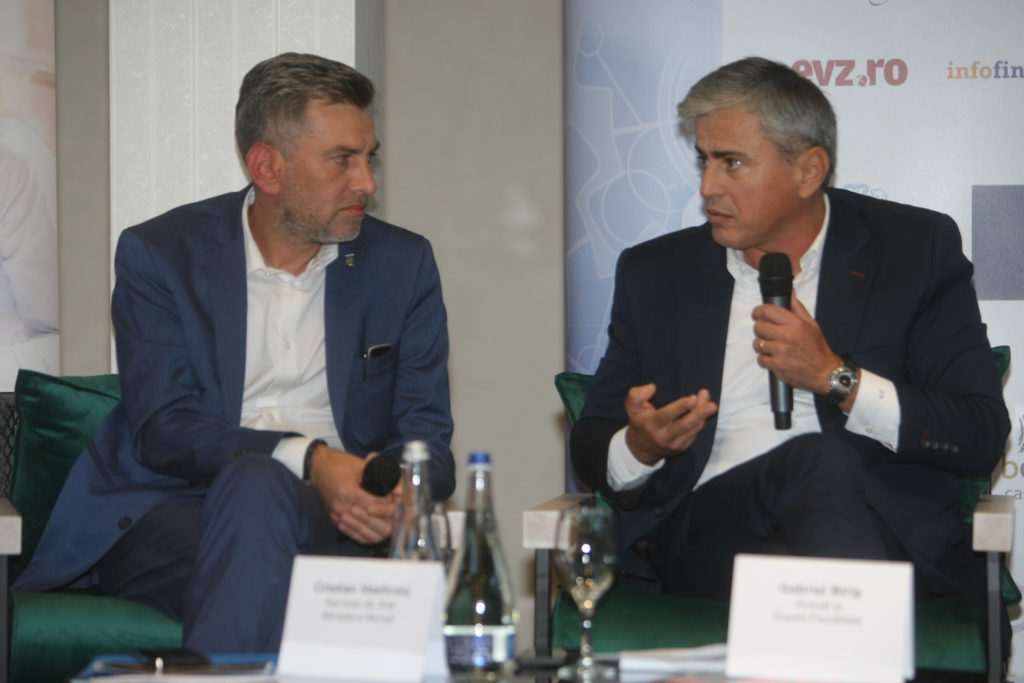
Elena Panțîru and Christian von Albrichsfeld highlighted the problems that employers face when importing labour from abroad, both of a legislative, economic and logistical nature. Elena Panțîru said that “The employer who brings a foreigner to work spends a lot of money. We need a law, because at the moment there is chaos. Staff is disappearing”, while the general manager of Continental said that “We have hired people from the countries that have been mentioned (India, Sri Lanka), but the local authorities were not prepared for a new wave of foreign employees. We had to send them back to their countries because their visas had expired.”
Cristian Vasilcoiu intervened in the discussion stating that the Ministry of Labour issued an EGO on the very day of the forum to support companies with foreign employees.
Flexibility and transparency, two trends in human resources
The last two panels were moderated by Ionuț Cristache and focused on the resilience and profitability of the workforce. The speakers were: Dragoș Anastasiu, President of Rethink Romania, Patricia Andrei, Human Resources Manager CEC Bank, Bogdan Badea, CEO Ejobs, Codruț Nicolae, General Manager Edenred Romania and Benefit Systems, Ioana Petrea, Managing Partner RightFit Romania, Frederic Lamy, CEO Leroy Merlin, Nicu Vasile, president of the Romanian League of Agricultural Producers Associations (LAPAR), Remus Dănăilă, economist, Claudia Tamași, country manager Codecool Romania, Mihai Găvan, global strategic alliances director Total Soft and Evely Vîlcu, chief growth officer Stakeborg.
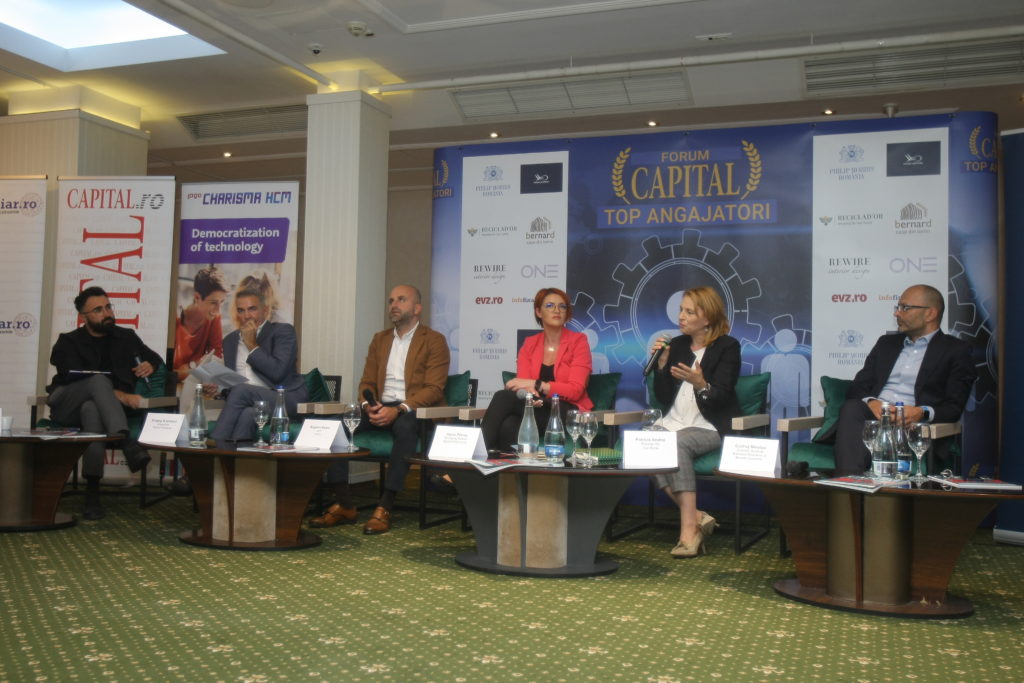
Discussions ranged from the demands and requirements of Generation Z in the workplace and the attention that employers need to pay to this generation, to the transparency of pay and benefits that companies will need to adopt from 2023 onwards, and not least the flexibility of working hours.
“Generation Z sometimes has unjustified demands. I don’t know if we’re just talking about expectations from a financial perspective, it’s an attribute of this generation, they’re impatient. They need immediate feedback, to be comforted, to be told they are doing well, they get easily demotivated if they are not recognised, and their tolerance for failure is very low. That forces you as a manager to be very present in their world.” said Ioana Petrea.
“Romanian management is not open to such discussions (transparency of salaries in the company), postpones for performance evaluation, and then the man resigns. The situation will change in 2023, at the end you will have to say the salary in the recruitment notice, so the market will be rewritten. There will be many surprises between companies, as if salaries are not discussed in companies. The more taboo a topic is, the more interesting it is. The more open we are, the better decisions we can make,” said Bogdan Badea.
Familiarisation with blockchain technology
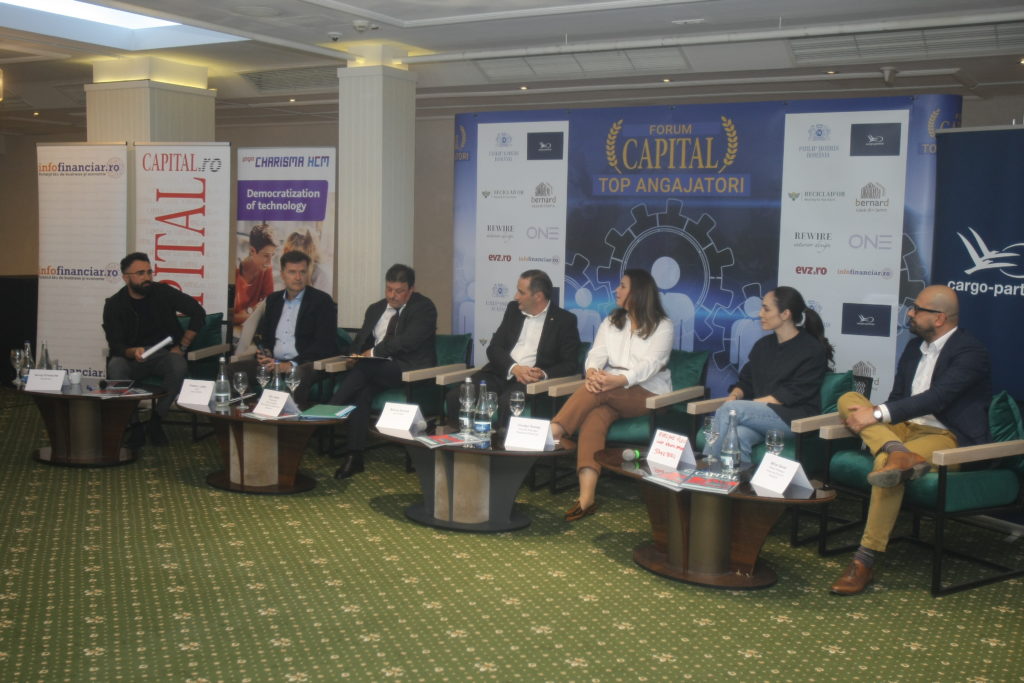
The technological boom we are in has not been ignored either, especially as the IT job market is a balanced one, and the next logical step would be to develop blockchain knowledge, especially as several prestigious universities abroad have introduced the subject into the curriculum.
“Blockchain is a technology that emerged in the 1990s. Only recently, with the crypto area, has it been made popular. I didn’t expect someone to come and ask for my salary in a cryptocurrency. What we don’t realise is that blockchain technology is with us, and the wave it will create will be unstoppable.” Mihai Gavan said.
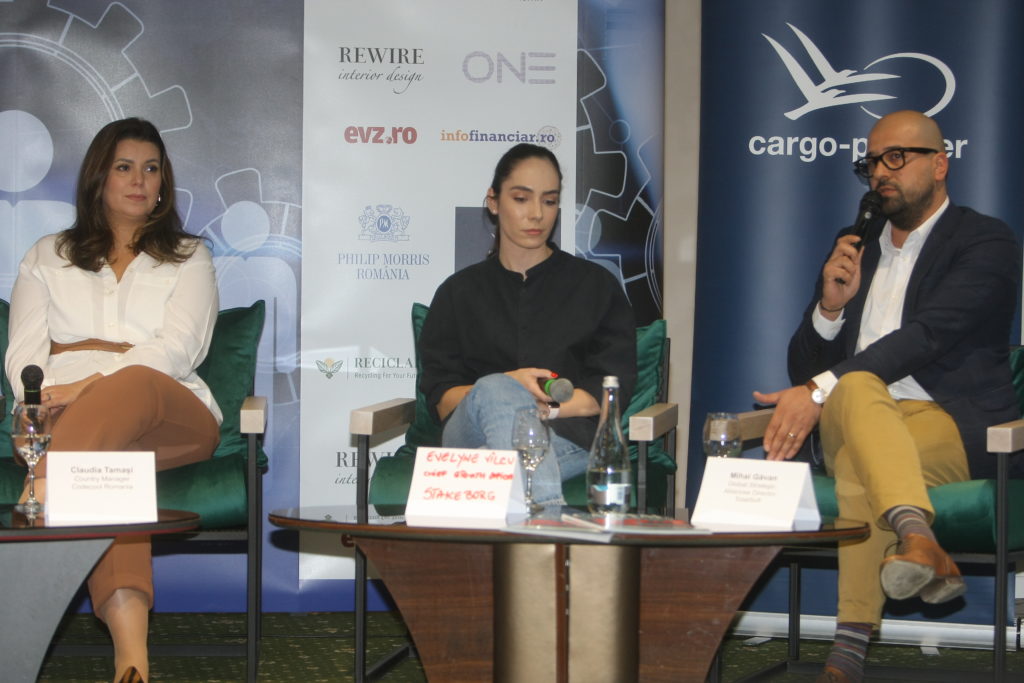
Starting today, 23 September, no. 1346 of Capital magazine can be purchased on Agoramag.ro and at all press distribution centres. Find the top 100 companies in terms of employer brand in areas such as retail, energy, banking and insurance, industry, consumer goods manufacturing, agriculture and food industry, construction, it and telecommunications, transport and logistics and pharmaceuticals and healthcare.
In this issue you will also discover how Romania trains its human resources in IT, a foreign policy analysis for the “battle” for Africa, an analysis of the European funds in the NREP, a report on the territory our country had in Albania and lost and many other interesting materials.
Source: capital.ro

